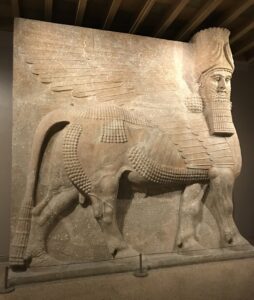Let’s talk about the People We Don’t Like. Let’s call them the PWDL for short.
I’m not talking about enemies, i.e. people who have actually done harm to us or to people we love or to projects or work that matters to us. I’m talking about the PWDL. We just don’t like them. They don’t share our faith, or our politics, or our lifestyles, or our commitment to the Broncos. They’ve made decisions we don’t like: sending their kids out of district or consistently mowing their lawn on Saturday at 6 a.m. They innocently annoy us. They just are not our cup of tea.
“Not my cup of tea” is actually my favorite way to describe these folks. It goes light. It casts no judgment. It declares definitively that the “not liking” part of the situation is my responsibility only. The other cup of tea has done nothing wrong.
Instead of PWDL, perhaps I should call these folks about whom I’m writing today the NMCOTs. Or maybe not. Let’s stick to the PWDL.
The first thing worth noting about thy PWDL is that we can’t avoid them. Oh, we can try. The larger the community in which we live, the easier time we may have segregating ourselves. Here in our small town, though, it’s almost impossible. It’s tough to hide from someone when there are only two grocery stores in town and one post office. We work with them. We sit next to them in the bleachers during the JV volleyball game. We (gulp) go to church with them.
It’s not that we actively seek harm for the PWDL, but we’re loathe to help them. We hate to see them succeed. We even might (albeit silently) wish them unhappiness or enjoy their failures or blame them for their suffering.
Therein lies the rub.
You see, the second thing worth noting about the PWDL is that there is nothing wrong with simply not liking them, but it doesn’t get us off the hook of loving them. That’s the Jesus part of this life. Somewhere in between loving thy neighbor and loving thy enemy is loving thy PWDL. We must sincerely seek their welfare, not because we like them, not because we enjoy it, but because they are made in the image of God just like us.
It’s a lesson hard learned and even harder lived. Just ask Jonah.
 Remember the Ninevites? We meet them in the Book of Jonah, when God calls the prophet Jonah to preach repentance to them. “Arise, go to Nineveh, that great city, and call out against it, for their evil has come up before me” (Jonah 1:2). Jonah famously says, “Heck no,” and sails in the other direction.
Remember the Ninevites? We meet them in the Book of Jonah, when God calls the prophet Jonah to preach repentance to them. “Arise, go to Nineveh, that great city, and call out against it, for their evil has come up before me” (Jonah 1:2). Jonah famously says, “Heck no,” and sails in the other direction.
Most commonly, we characterize the Ninevites as archenemies of God’s people. We preachers like to cast the Ninevites as Nazis or the Taliban, the most evil of the most evil, so (of course!) Jonah runs the other way. Is that a fair assessment of the Ninevites? Maybe. But not necessarily. And not uniformly.
The scale of the real harm by the Ninevites of Assyria really depends upon when the Book of Jonah was written, which is a matter of serious scholarly debate. I’ve found learned opinions that put the writing of the Book of Jonah anywhere from 786 to 187 BCE. A lot can change in 600 years, and the Assyrians were of wildly varying military capacity over the span of those centuries.
Add to that, there’s more serious scholarly debate about the actual severity of the Assyrians’ military attacks on Israel. Yes, they sacked Samaria and Judah (2 Kings 18:9-10, 13), and the Assyrian king Sennacherib threatened the Israelites like crazy (19:11-13), but Jerusalem was ultimately left untouched. 1 Kings 19:35-36 remembers the Assyrians turning back from the city after 185,0
00 of their soldiers died; the corresponding Assyrian history names no such losses (here) but the result is the same. Damage? Yes, a lot, but this was all around 700 BCE, so, if the date of Jonah’s prophecy is hundreds of years later, would hatred still have burned so bright? Maybe, but maybe not.
The Japanese did a number on Pearl Harbor. That was only 80 years ago, but I still made cheesecake bars for a Japanese student’s birthday last week.
So, maybe, just maybe, these Ninevites are less “member of the Taliban”-level evil and more “that girl who got me kicked off the volleyball team in eleventh grade”-level annoying. Maybe the Ninevites were closer to PWDL.
And God still sent Jonah to call them to repentance. Jonah didn’t want to help them. He found a bush and sat pouting under it, because he didn’t want the Ninevites to succeed. He wanted them to suffer the consequences of their own sins with no hope of escape.
When we’re silently enjoying the spectacle of our spouse’s ex-whatever’s new relationship falling apart, are we any better than Jonah pouting under the bush?
That’s a whole lot more convicting, at least for me, because I don’t often run across Nazis or Taliban at a Friday night football game, but I guarantee you I regularly see the clergy colleague who shared my confidential prayer request all over town.
Love the PWDL in your life, Jesus commands. No, we don’t have to like them or spend time with them, but we must sincerely hope for, pray for, and act in their best interests. Jesus is calling us to really want what is best for them.
All of them.



Leave a Reply